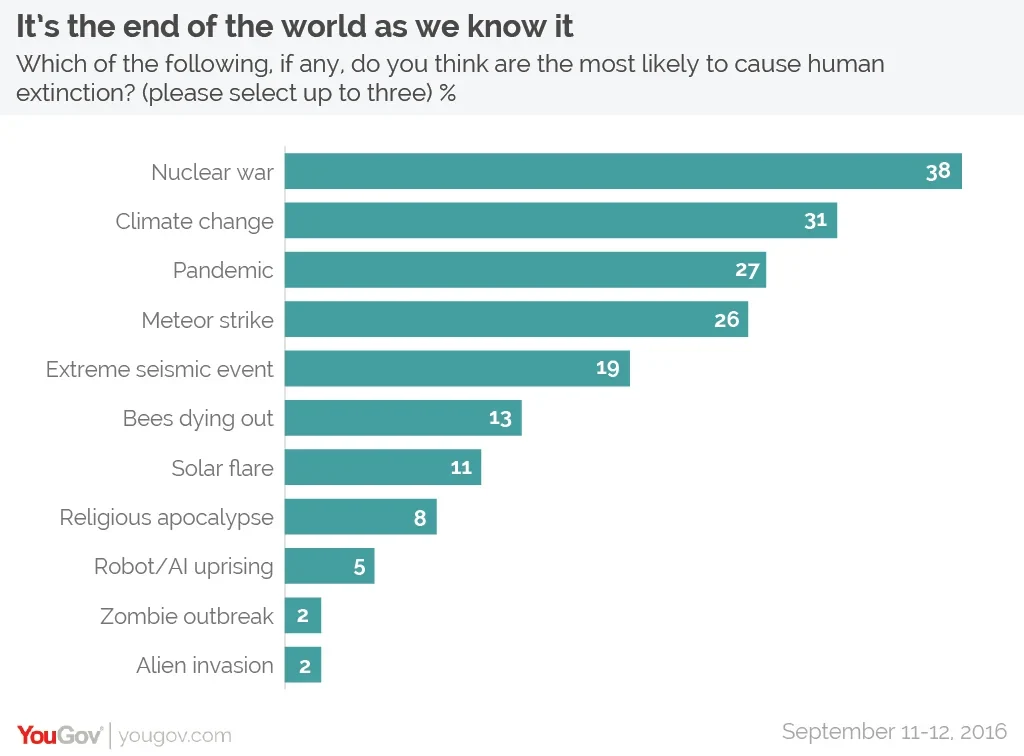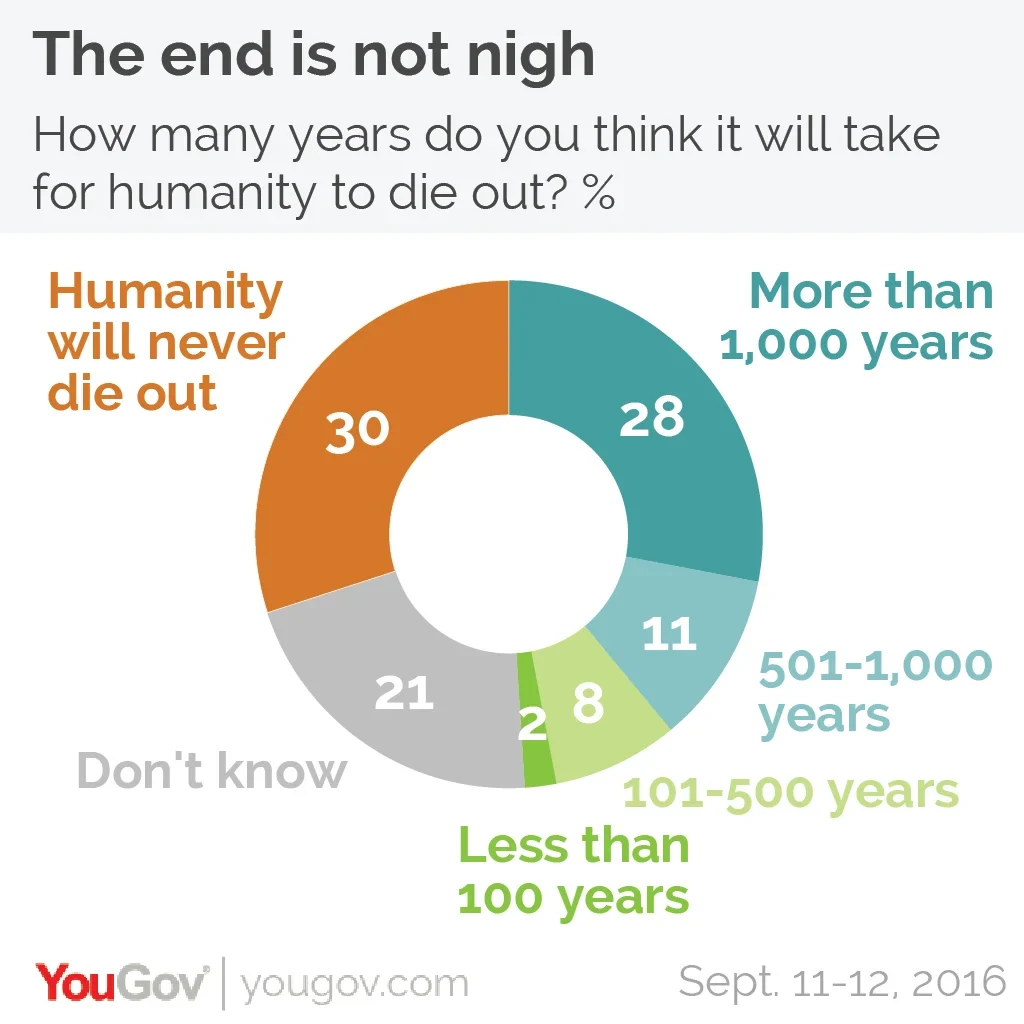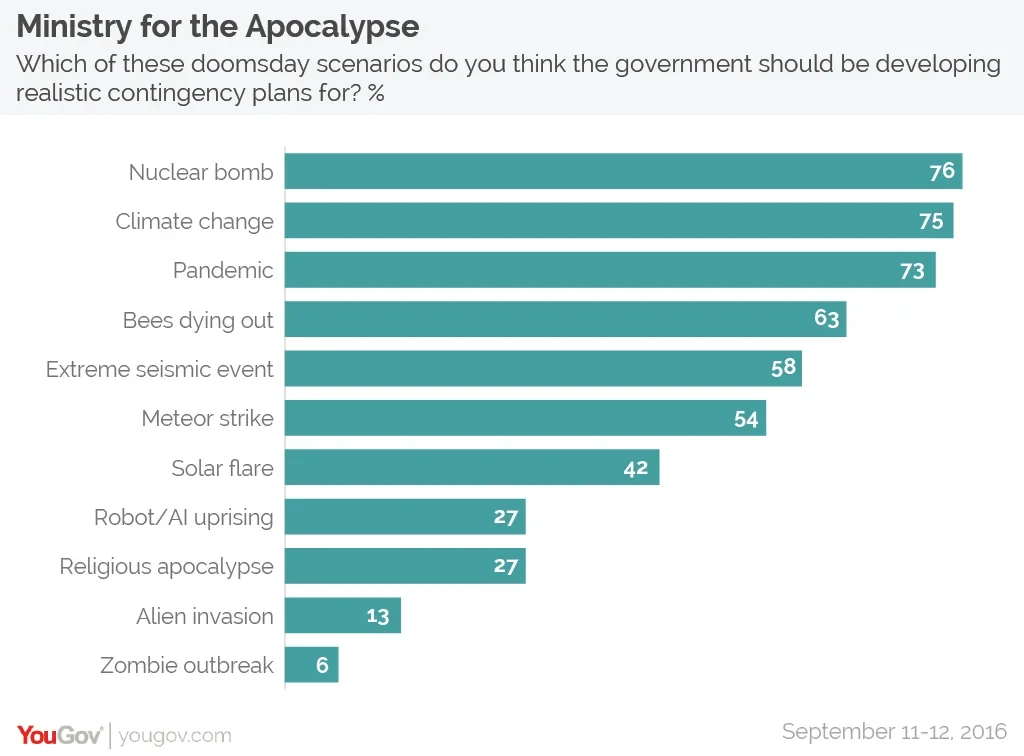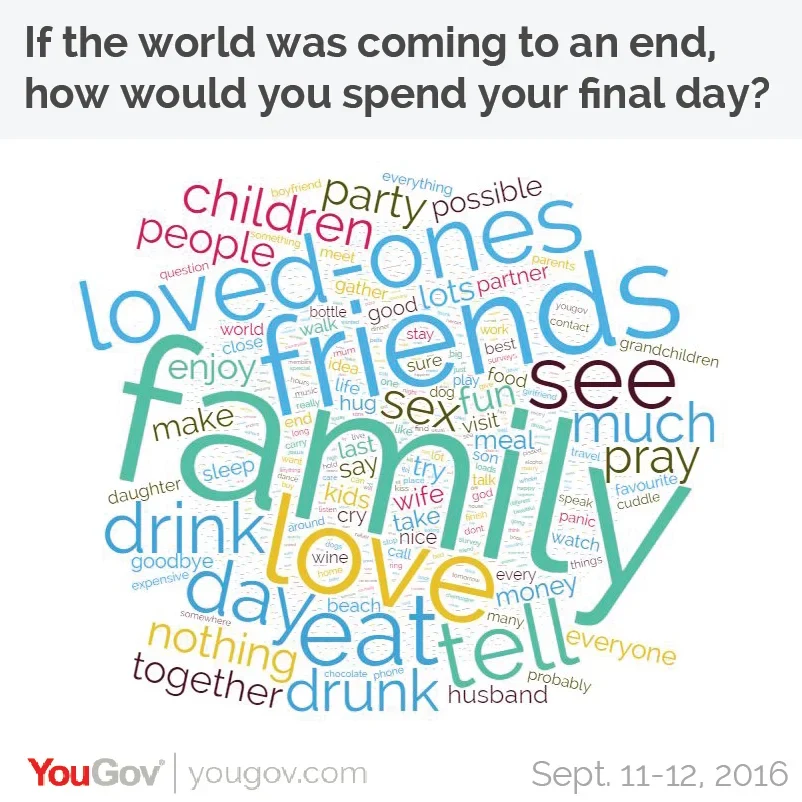Nearly four in ten people think that nuclear weapons are the most likely cause of human extinction
During last night's US presidential election debate, Donald Trump said that nuclear weapons are the biggest threat facing the US, not global warming. The British public might not fans of Donald Trump - just 8% of Brits have a favourable view of the Republican candidate - but they do agree on this point.
New YouGov research finds that nearly four in ten British people (38%) believe that nuclear warfare will be the most likely cause of human extinction. Climate change is the next most popular choice on 31%, followed by some form of pandemic (27%) and a meteor strike (26%). An alien invasion or zombie outbreak are seen as the least likely option on just 2%.

Different age groups perceive apocalyptic threats differently. Whilst all age groups agree that the most likely cause of the apocalypse would be nuclear war, young people also believe that climate change is just as likely to bring about humanity’s end (39%), whilst old people are more sceptical (26%).
By contrast, younger people are far less concerned about meteor strikes (11%, compared to 27-32% of older age groups) and pandemics (18%, compared to 26-32% of older age groups).
The end is not nigh

That all being said, the public are not exactly pessimistic about the likelihood of an extinction event. Just 2% of people think that humanity will die out in the next 100 years and only a further 8% think it will happen in the next 500 years.
By contrast 38% believe that humanity has at least another 500 years left yet, whilst a further 30% think that humanity will never die out. Uncharacteristically, it is the youth who are the most pessimistic about our destiny with just 9% thinking humanity will last forever compared to nearly 42% of over 65s.
Ministry for the Apocalypse
Of course, it’s one thing to think that a meteor is the most likely cause of the end of days, it’s another to think it’s likely to happen any time soon. With so many people thinking that humanity’s destruction isn’t due for another half millenia or more, is it worth governments planning to deal with these threats?

Yes, is the public’s answer. About three quarters of the public think that government should be contingency planning for nuclear war, climate change and a pandemic, whilst more than half also think that bee deaths, extreme seismic events and meteor strikes are also worth planning for.
It’s the end of the world as we know it – but I feel fine
Assuming these contingency plans were unsuccessful, we also asked people how they would spend their final twenty four hours on this planet.
Nearly half (44%) told us they would spend time with family or friends - most people generically used the words “family” or “friends” but, of those that did specify, “children” “wife” and “husband” were the relatives people most wanted to spend their final hours with.

A further 6% of people mentioned eating and/or drinking as their way of whiling away their final hours. Chocolate was the most mentioned food and champagne was the most mentioned drink.
Surprisingly, only three respondents told us they would spend their final day taking YouGov polls – we thank them for their dedication.
Photo: PA




